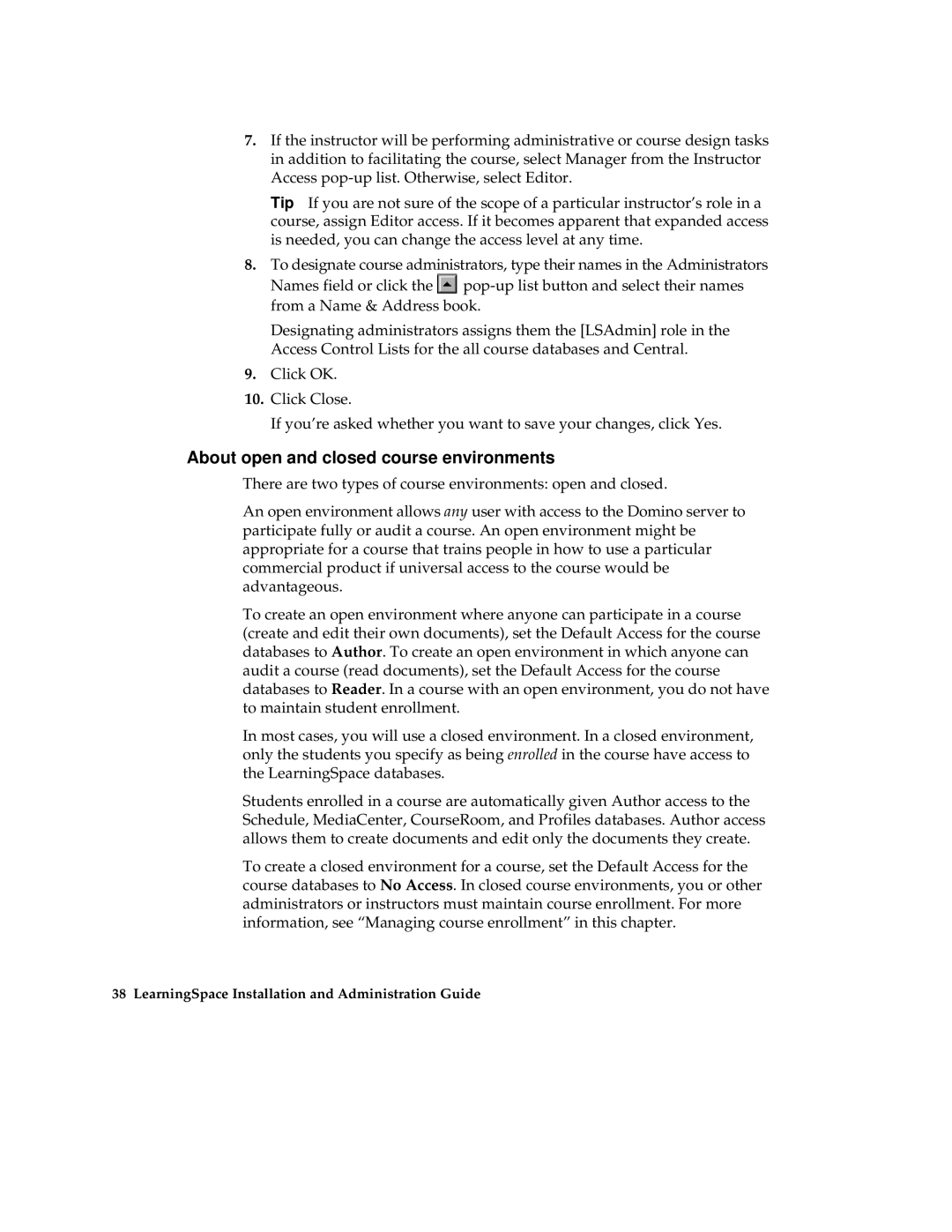7.If the instructor will be performing administrative or course design tasks in addition to facilitating the course, select Manager from the Instructor Access
Tip If you are not sure of the scope of a particular instructor’s role in a course, assign Editor access. If it becomes apparent that expanded access is needed, you can change the access level at any time.
8.To designate course administrators, type their names in the Administrators Names field or click the ![]()
Designating administrators assigns them the [LSAdmin] role in the Access Control Lists for the all course databases and Central.
9.Click OK.
10.Click Close.
If you’re asked whether you want to save your changes, click Yes.
About open and closed course environments
There are two types of course environments: open and closed.
An open environment allows any user with access to the Domino server to participate fully or audit a course. An open environment might be appropriate for a course that trains people in how to use a particular commercial product if universal access to the course would be advantageous.
To create an open environment where anyone can participate in a course (create and edit their own documents), set the Default Access for the course databases to Author. To create an open environment in which anyone can audit a course (read documents), set the Default Access for the course databases to Reader. In a course with an open environment, you do not have to maintain student enrollment.
In most cases, you will use a closed environment. In a closed environment, only the students you specify as being enrolled in the course have access to the LearningSpace databases.
Students enrolled in a course are automatically given Author access to the Schedule, MediaCenter, CourseRoom, and Profiles databases. Author access allows them to create documents and edit only the documents they create.
To create a closed environment for a course, set the Default Access for the course databases to No Access. In closed course environments, you or other administrators or instructors must maintain course enrollment. For more information, see “Managing course enrollment” in this chapter.
